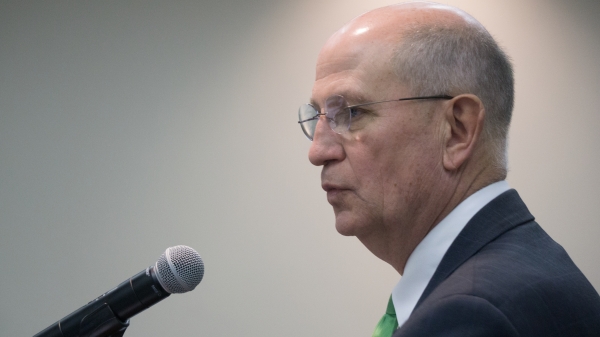Alabama is a great state for business. Bolstered by strong and competitive industries across sectors, from construction and manufacturing to technology and medical innovation, we’ve consistently been listed as a top ten state in the country to do business. Our business-friendly policies, competitive workforce training programs, and vital public-private partnerships continue to fuel our success.
However, our state also faces one of the most severe workforce shortages in the country, with only 38 available workers for every 100 open jobs. Despite companies needing skilled employees more than ever, longstanding employment and occupational licensing barriers continue to block businesses from accessing a large and waiting talent pool: people with criminal records. Even old records that have no relevance to a job’s requirements often stand in the way of good people finding good jobs. It’s well past time for Alabama to improve access to licensing and tap into this valuable pool of overlooked talent.
That’s why, as the co-founder of a small business and Certified B Corp in Alabama called LunarLab, I strongly support the passage of SB138/HB238. This legislation would improve the process for carefully vetting the fitness of job seekers, ensuring that people with minor records are not permanently or arbitrarily barred from essential jobs that drive our state’s economic growth. It would also allow individuals to request confirmation on their eligibility for a license, before investing substantial time and money in pursuing education and training requirements.
As should be the case, licensure confirms that individuals are qualified to safely perform specialized jobs, granting legal permission to work in certain occupations and upholding high qualification and safety standards. However current laws are too strict and stray from accomplishing this mandate. When nearly one in every five jobs in Alabama require a license, it’s important to advance thoughtful reforms that recognize the value of justice-impacted talent — skilled individuals who seek a fair shot to contribute to their communities.
Without reform, these barriers don’t just limit opportunity — they perpetuate a cycle of exploitation. When people are locked out of stable, licensed work, they are more vulnerable to low-wage, off-the-books employment, financial instability, and re-involvement with the justice system.
Hiring justice-impacted people is a proven solution to expand the workforce. More than 80 percent of business leaders rate the performance of their justice-impacted employees as equal to or better than that of workers without records. Second chance employees also have a lower turnover rate, saving businesses critical dollars on hiring and retention costs. In turn, these businesses see increased support and applicants — nearly three-quarters of all workers said they would prefer to work for a company with fair-chance hiring practices.
Licensing reform saves tax dollars and increases prosperity. A study by the Institute of Justice estimates that overly burdensome licensing systems cost the state’s economy $1.88 billion each year and leads to 21,000 fewer jobs, keeping ready workers on the sidelines and limiting employers’ ability to fill jobs. By reducing these barriers, Alabama can boost incomes, increase tax revenue, and decrease the need for long-term government support.
Expanding job opportunities, especially in well-paying fields that require a license, is also a win for public safety. Studies show that gainful employment is a critical factor in preventing recidivism. Individuals who are gainfully employed two months after reentry are half as likely to reoffend compared to those who are unemployed. Furthermore, states with more second-chance licensing saw a 2.5 percent decline in recidivism over a 10-year period.
As a business owner in Alabama, it’s important to me to support policies that not only are the right thing to do, but that help businesses and our overall state economy. Opening access to occupational licensing is a common-sense solution. Most states have already passed occupational licensing reform and seen the benefits — for the workforce, local communities, and statewide economy. Now, it’s Alabama’s turn to do the same.
I applaud lawmakers for introducing SB138/HB238, and as an Alabama business owner, I respectfully urge our state’s legislature to prioritize the full passage of this reform. This legislation will help ensure Alabama remains a top state for business.















































